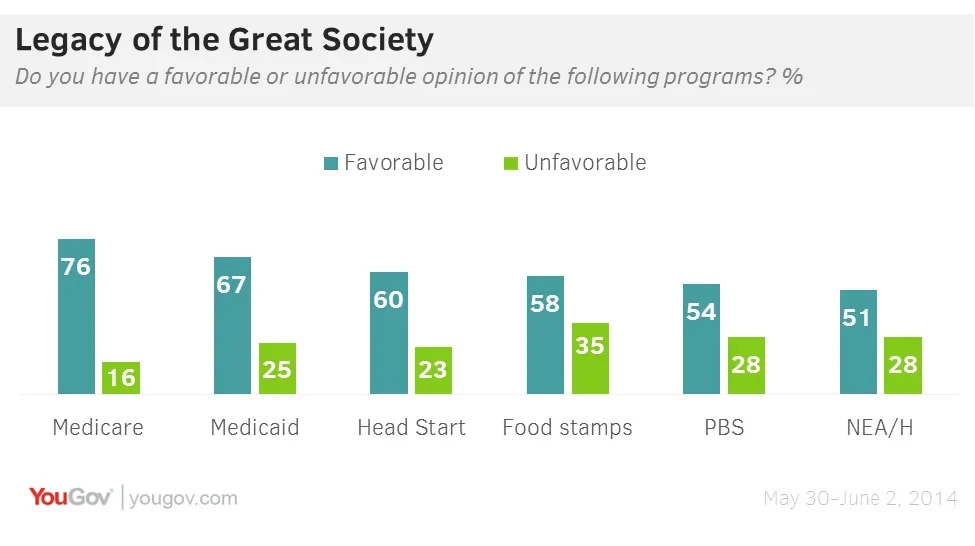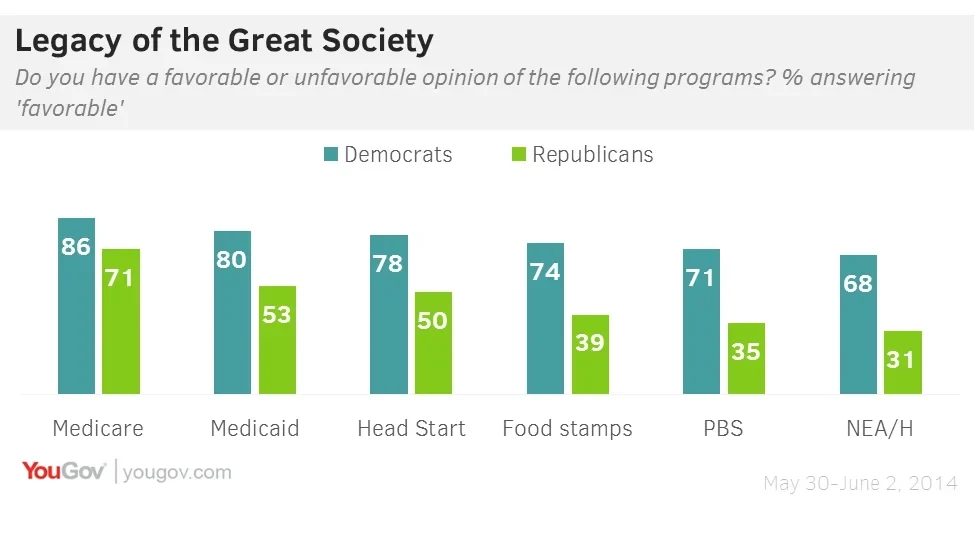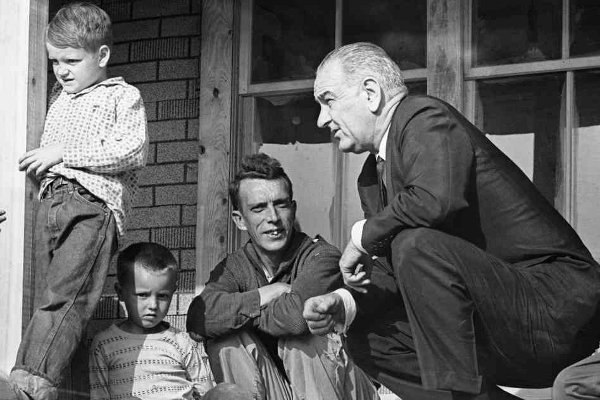Looking back on the legacy of LBJ's 'Great Society', most of the surviving programs that he initiated are still popular with the public
Between 1964 and 1968 President Johnson led the federal government in a flurry of institution-building and swift Congressional action that changed Americans' relationship with their national government more dramatically than at any time since the days of the Great Depression. Johnson's legacy may have been overshadowed by the war in Vietnam, but the 'Great Society' still shapes our lives today, with many of the largest federal programs – such as Medicare, Medicaid and an expanded food stamps system – tracing their lineage back to the Johnson administration.
YouGov's latest research shows that, fifty years on, the main surviving Great Society programs are viewed favourably by most Americans. The National Endowments for the Arts and for the Humanities (NEA and NEH), the least popular of the Great Society programs included in the poll, are viewed favorably by 51% of Americans and unfavorably by only 28%. The NEA and the NEH offer federal support and funding for cultural and artistic projects. Medicare, which provides health insurance to Americans over 65, is the most popular of the Great Society federal benefits mentioned, with 76% liking the program and only 16% disliking it.

On the whole, Independents and Democrats have positive views of the major Great Society programs, but among Republicans many of the programs are much less popular. 71% of Republicans have a favorable opinion of Medicare – only 5% less than the national average – but for Medicaid, which provides health insurance to the poor, favorability among Republicans stands at 53%, compared to 67% for the broader public. Republicans also tend to have more unfavorable than favorable opinions of food stamps (59%), the National Endowments for the Arts and for the Humanities (50%) and the Corporation for Public Broadcasting (48%).
Among Democrats the least popular of the programs are the National Endowments for the Arts and for the Humanities, but even then 68% have a favorable opinion compared to just 14% of Democrats with an unfavorable opinion.

The Great Society wasn't just limited to federal spending on social and cultural programs. It also saw the passage of major Civil Rights legislation that, among other things, protected voting rights in areas with a history of discrimination, prohibited employment and housing discrimination and abolished national quotas for immigration.
Full poll results can be found here.
Image: Getty










